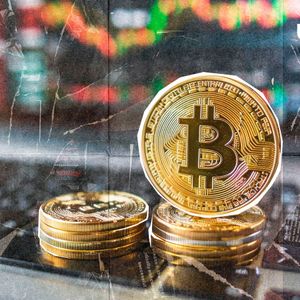Fed’s Kugler says US tariffs will weaken economic growth
3 min read
Federal Reserve Governor Adriana Kugler warned Monday that fresh tariffs on imports could lift prices and slow the economy, cutting household buying power and trimming growth. Speaking in Dublin, Ireland, Kugler said steeper duties would work like a supply shock. “Higher tariffs on U.S. imported goods may affect our macroeconomy through many channels… I think they will primarily raise prices and decrease economic activity,” she told the audience. Her remarks landed the same morning Washington and Beijing agreed to ease their trade fight. Both sides set a 90‑day window to cut tariff rates by 115 percentage points while longer‑term rules are being discussed. US duties that have reached 145 percent will slide to 30 percent, and China’s retaliatory charges will fall from 125 percent to 10 percent. “Trade policies are evolving and are likely to continue shifting, even as recently as this morning,” Kugler said. The governor sees that inflation risks are still high and supports holding interest rates steady. “Ultimately, I see the United States as likely to experience lower growth and higher inflation,” she added. Her caution echoes Friday’s comments from Vice Chair Michael Barr and New York Fed President John Williams, who also flagged higher inflation, weaker output, and a possible rise in unemployment. Chair Jerome Powell voiced similar caution on Wednesday, saying he would wait for clearer data before changing course. On that day all officials voted to keep the target range at 4.25 percent to 4.50 percent, a level reached late 2024 after a full‑percentage‑point cut that autumn. The White House has increased its push for lowering interest rates as a cushion for economic slowdown in the future. President Donald Trump renewed his demand to ease policy stance on Thursday, suggesting Powell does not want to lower the interest rates “because he’s not in love with me.” On social media, Trump labeled the Fed chief “Too Late’ Jerome Powell” and wrote that Powell “is a FOOL, who doesn’t have a clue.” News of the 90‑day pause helped Wall Street , with stocks rising on hopes of less trade strain. Bond yields slipped while the dollar weakened slightly against major currencies as traders recalibrated their outlook. Analysts said the gesture signaled both countries wished to avoid a disruptive escalation during talks this quarter. Kugler notes that the average tariffs are still high after cuts Still, Kugler said the economy will feel the hit if tariffs stay near their new levels, and uncertainty itself is already shaping business plans through “front‑loading, sentiment, and expectations.” She noted the average tariff, even after cuts, is “much higher” than at any time in many decades. If duties remain far above where they stood earlier in the year, she warned, the economic growth will weaken. Higher costs, she said, would lower inflation‑adjusted incomes and raise business expenses, leading households to buy fewer goods and firms to order fewer inputs. Over time, that could hurt productivity. Firms paying more for parts and facing softer demand might scale back investment and settle for less efficient production mixes. In the near term, steeper import bills are set to feed straight into consumer prices and the cost of items used in factories. Imports account for only about 11 percent of gross domestic product, yet tariffs on intermediate goods such as aluminum and steel can ripple through many supply chains. Kugler pointed to the Dallas Fed’s latest survey of Texas executives, where 55 percent of companies said they plan to pass most or all tariff costs to customers. Of those, 26 percent aimed to raise prices when tariffs were announced, and 64 percent expected to do so within three months. “That suggests to me that price increases may occur soon,” she said. She also cited the University of Michigan’s consumer survey, where longer‑term inflation expectations hit their highest mark since June 1991. “With inflation and employment potentially moving in opposite directions down the road, I will closely monitor developments as I consider the future path of policy,” Kugler concluded. Cryptopolitan Academy: Coming Soon – A New Way to Earn Passive Income with DeFi in 2025. Learn More

Source: Cryptopolitan



